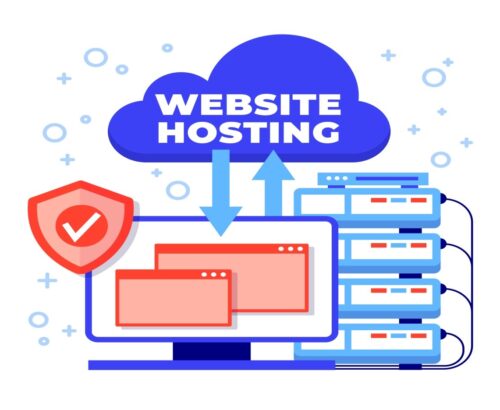
Understanding Web Hosting: A Comprehensive Guide to Types and Services
In the dynamic digital landscape, having a reliable web hosting service is crucial for the success of any online venture. Whether you’re a blogger, business owner, or developer, choosing the right web hosting solution can significantly impact the performance and accessibility of your website. Join Mars Software Solutions as we explore the ins and outs of web hosting, uncovering different types and services that cater to diverse needs.
Understanding Web Hosting:
What is Web Hosting?
At its core, web hosting refers to the process of storing and maintaining files for a website, making it accessible to users on the internet. When users type in your website’s domain name, the web hosting server delivers the requested files, ensuring a seamless online experience.
Types of Web Hosting:
Shared Hosting: Shared hosting is an excellent entry-level option for small websites and beginners. In this type, multiple websites share resources on a single server. It’s cost-effective, but resource limitations may impact performance during traffic spikes.
Virtual Private Server (VPS) Hosting: VPS hosting provides a more robust solution by allocating dedicated resources to each virtual server. This enhances performance and allows for greater customization without the cost of a dedicated server.
Dedicated Hosting: Ideal for high-traffic websites, dedicated hosting offers an entire server exclusively for one website. This ensures optimal performance and flexibility but comes with a higher price tag.
Cloud Hosting: Cloud hosting distributes resources across multiple servers, providing scalability and reliability. It’s a flexible option that adapts to varying traffic levels, making it suitable for growing businesses.
Best WordPress Hosting:
As the most popular content management system (CMS), WordPress requires specific hosting solutions for optimal performance. Several factors contribute to the best WordPress hosting:
- Performance
Look for a hosting provider that offers high-performance servers with features like SSD storage and content delivery networks (CDNs) to ensure fast loading times.
- Security
WordPress sites can be vulnerable to cyber threats. Opt for a hosting provider that implements robust security measures, such as firewalls, regular backups, and malware scanning.
- Scalability
A hosting solution that scales with your WordPress site’s growth is essential. Choose a provider that allows seamless upgrades to accommodate increased traffic and content.
